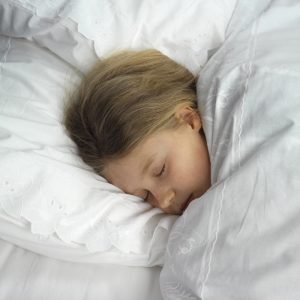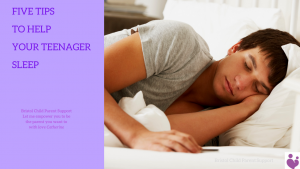Research shows not having enough sleep can profoundly affect your physical and emotional health. According to the UK Sleep Council, 47 per cent of adults in Britons now say that stress or worry keeps them awake at night (47 per cent), rising to 54 per cent of women (compared to 40 per cent of men) and 57 per cent of singles. Think of all the impacts on productivity, health and well-being.
Click on my short video to find out why sleep matters.
The National Sleep Foundation recommends that parents/adults need 7-9 hours of sleep per night. Babies, children, and teenagers need much more. It is not just the amount of sleep but the quality of the rest; we must go into deep Sleep. I hope you watched the video. I wanted to show you why I am passionate about your sleeping well every night. Sometimes one consultation with me will be enough to get you or your child on the right track. But these things can take time, especially if your child cannot self-soothe or if you have a long-standing issue. Therefore, I offer sleep talks for adults and consultations for children of all ages.
I can provide a free 10-minute call to discuss your issues, which must be booked beforehand.
Read more detail about what happens in a sleep consultation.
Book a consultation or free call >
Sleep Difficulties in Adults:
- Stress
- Insomnia, difficulties in getting off to sleep, waking up, and not having the right quality of sleep
- Anxiety
- Low Mood
- Work-life/imbalance
If you work in a company and want to help you and your colleagues sleep better, I offer Sleep Workshops so you understand the science of sleep and what you can do to have a good night’s Sleep. Please click on the video below for several examples of the long-term risks of sleep deprivation.
Children’s sleeping difficulties
Monitor how much your baby or child sleeps with my free sleep diary monitoring sheet. Click here> Parent 7-day Sleep monitoring diary for their child.
Signs and Symptoms of Sleep Deprivation
- Moodiness.
- Temper Tantrums.
- Grogginess when they wake up in the morning.
- The child is falling asleep in the car.
- I had to wake up your child almost every morning.
- A child is having trouble thinking during the day and seems spaced out.
- Your child is “crashing” much earlier than usual.
Early Years Sleep Difficulties ( 6 months – 4 years)
Click on my short video for top tips for sleep for toddlers upwards
- Establishing Nap routines
- How to help your baby go to sleep independently without rocking, moving, feeding, or staying with them until they fall asleep.
- Here is a video to help you understand your baby’s sleep
- Click on the link to my blog on the importance of self-soothing
- How to establish a 30-minute bedtime routine
- How to help your baby or toddler transition from co-sleeping to cot or from cot to their bedroom
- Separation Anxiety.
- How to prevent toddlers/preschoolers from constant night awakening and early rising
- How to help the resistance to go to bed
Middle Years Difficulties (ages 4 – 12)
-
- Separation Anxiety
- Anxiety, free my haven Audio to help your child feel safe at night>>>
- Nighttime Fears
- Establishing a bedtime routine in 35 minutes
- Night terrors
- Emotional Dysregulation
- Help with sleeping in their own bed free pdf>>>>Advice to help younger children sleep in their beds
- .Night/early morning awakenings
Adolescent Years Difficulties (ages 12-18)
- Insomnia
- Emotional Dysregulation
- Anxiety
- Low mood
Click here for my FREE pdf, FIVE TIPS TO HELP YOUR TEENAGER SLEEP
What happens in a consultation?
Step one – consultation
Before a session, I will request a sleep diary of at least three days. For children, this will include details of naps and feeds. You can contact me for adult talks for companies or a group to discuss your needs.
Every person is unique, so we spend time in the consultation discussing the options of the sleep plan. This considers the issue holistically and will include many strategies; they are gentle and focus on building solid and secure attachments and ensuring your baby or child can self-soothe. My designs are not about disguised, controlled crying. I find a successful outcome is one that the family feels comfortable with, making it easier and safe for your child.
Please note I cannot diagnose medical disorders; you may need other treatment from your GP.
Step two – design the sleep plan.
I have over 29 years of experience in the NHS. I work holistically and address your lifestyle and environmental internal and external factors contributing to sleep difficulties. This includes diet, work, family, and bedroom environment.
I use an integrative approach that includes CBT (Cognitive Behavioural Therapy) and Mindfulness as part of the treatment, and we work towards work-life balance and achieving good quality sleep.
With some children, we need to address the emotional difficulty, such as separation or generalised anxiety, before working with the behavioural aspect. I use evidence-based practices using gentle and kind strategies to help you to get back on track and develop a solid and secure attachment. Your plan will address the necessary techniques to help you or your child sleep.
Step three – follow-up
-
You can meet for further sessions following the consultation. I generally specialise in children with long-term and complex difficulties, so one session is often insufficient.
YOU DESERVE A GOOD NIGHT’S SLEEP
Parents often wait and then attend my clinic in desperation. Prevent that now.
Book a consultation >




